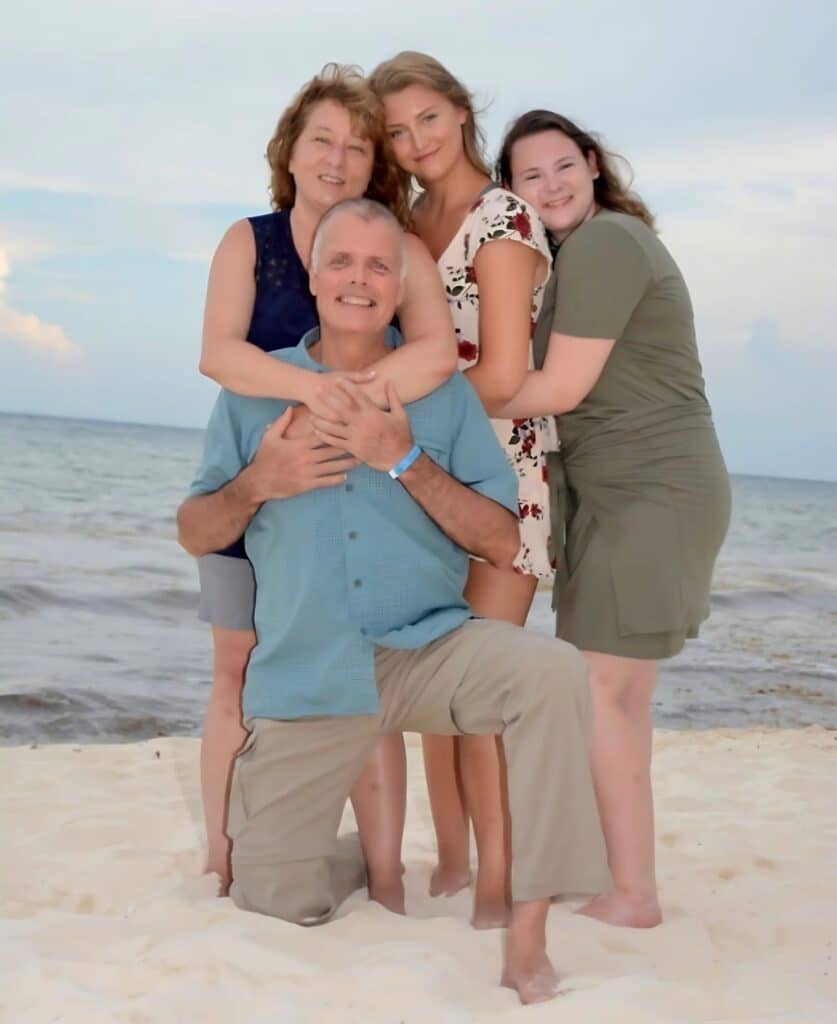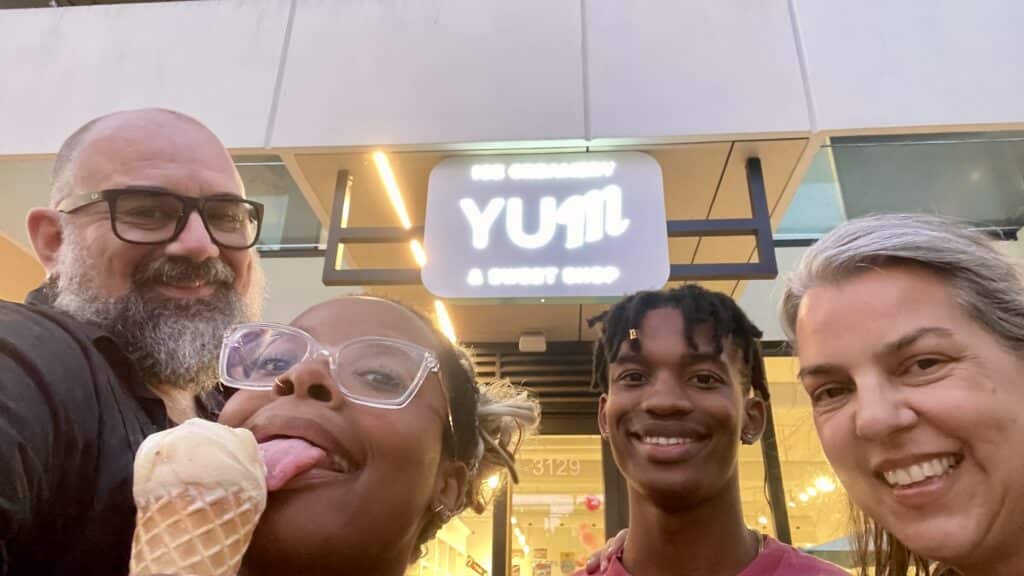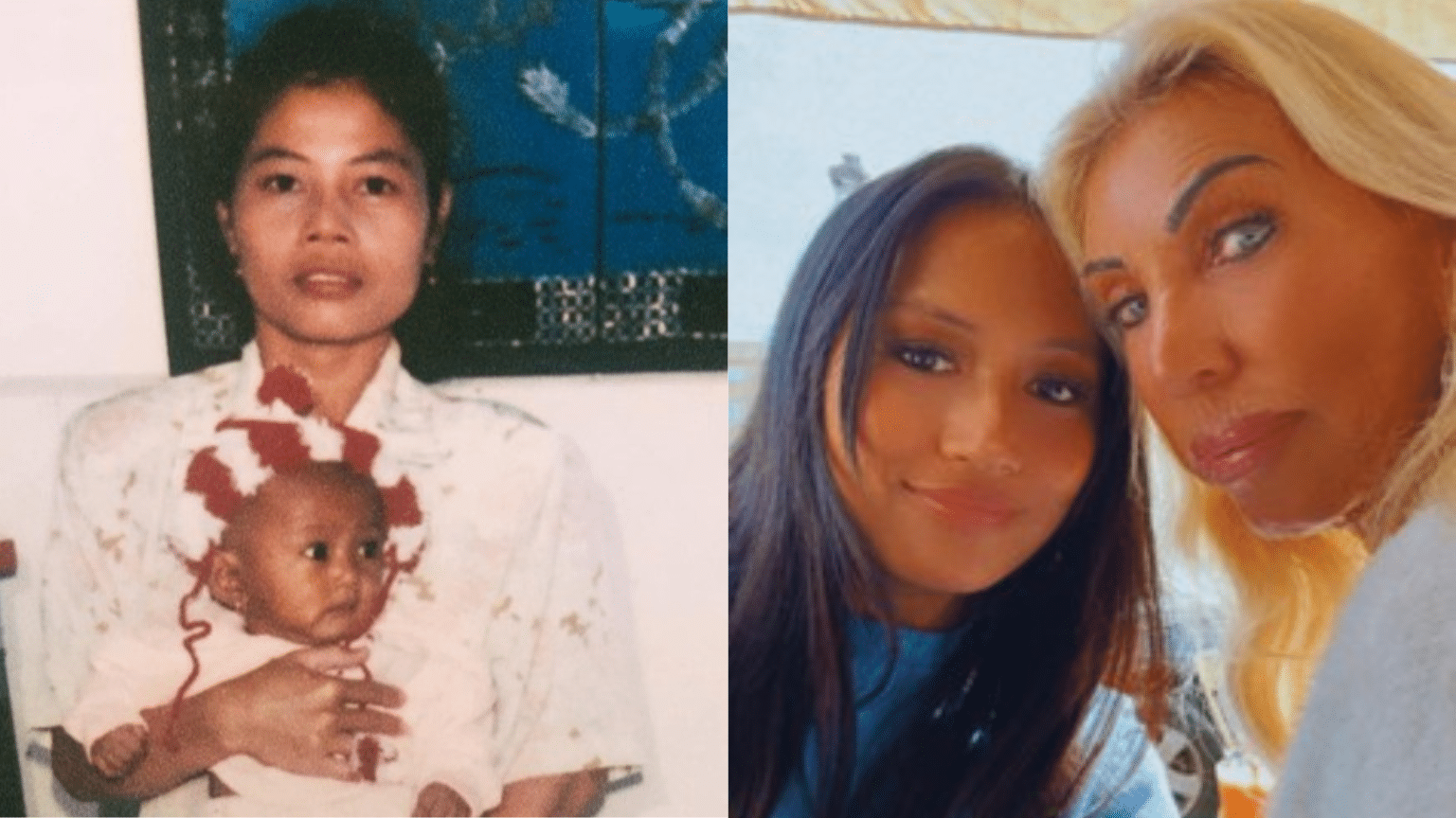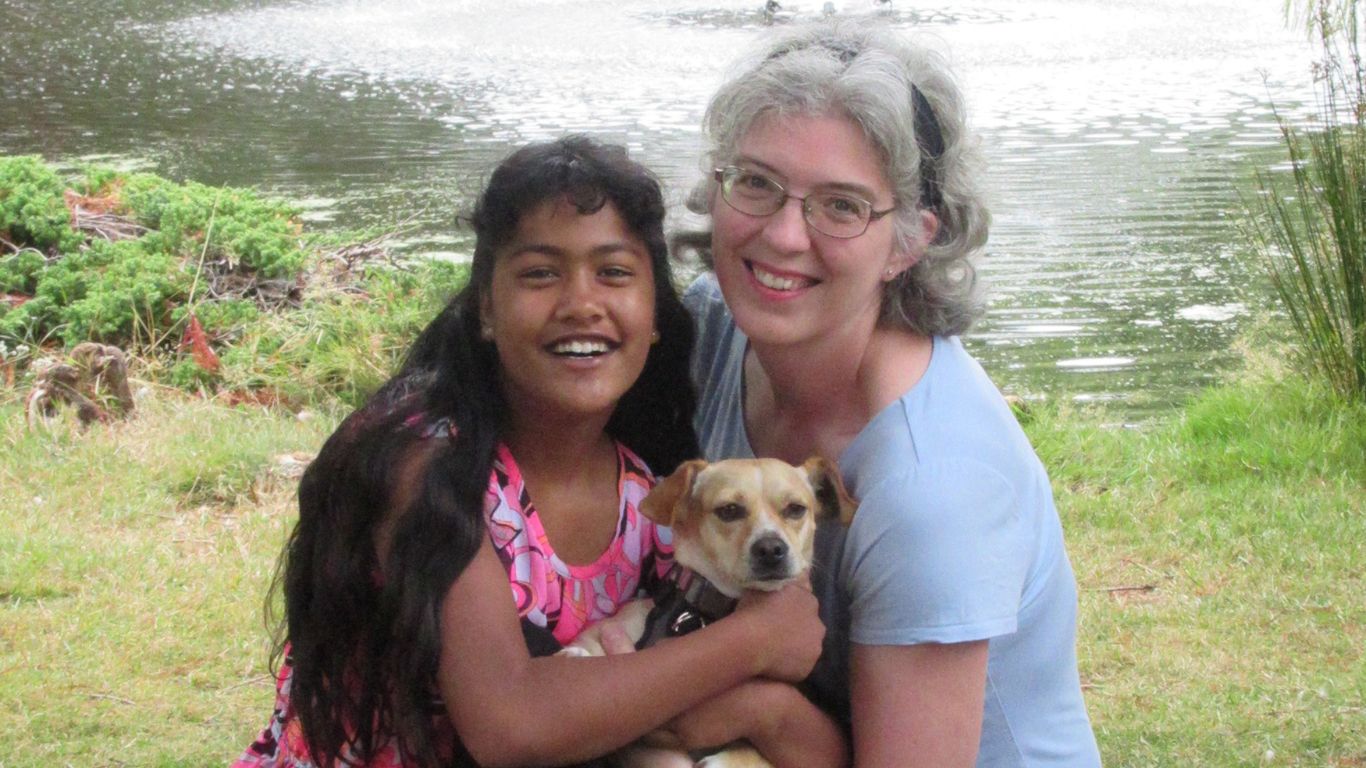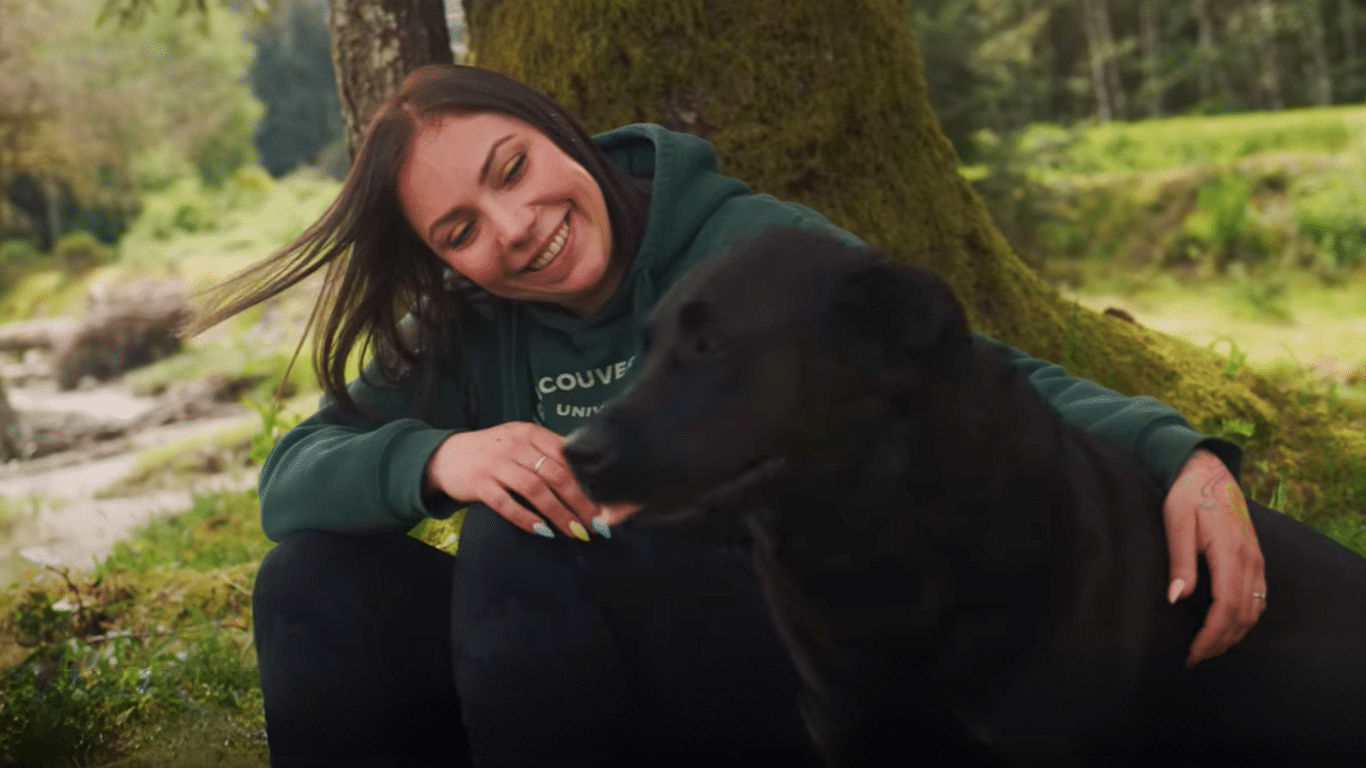In part two of her story, Desaray opens up about the rewarding ways adoption has shaped her life. She takes us through her parents’ cross-country journey to find her and the special bond she shares with her adoptive sister. Having been adopted at age eight, Desaray offers her perspective on adopting older youth, reminding us that lifelong connections can form at any age.
What has been a rewarding part of being adopted?
The relationships I’ve forged. If I hadn’t been adopted, I wouldn’t have the family I have now. My sister for example, if we didn’t end up as sisters, I have always felt that we’d find each other some other way and be best friends. We both have a birthmark on our hip, even though we’re not biologically related at all, so we got tattoos of each other’s names there and now we’re always attached at the hip. If I wasn’t adopted, I wouldn’t have a sister that I have an incredible bond with.
It’s also been rewarding to educate others and to change people’s perceptions of adoption and foster care. I’ve done school projects on the misconceptions around adoption, and I know that I’ve made people reflect on the things that they may have thought beforehand.
What is something about adoption or foster care that you wish more people knew?
It’s a great way to build a family. My parents were living in Ontario before they had adopted me or my sister, and they hadn’t planned on having children, but they went to a Wendy’s and saw a poster for the Dave Thomas Foundation for Adoption. When they saw it, they thought adopting would be a great thing to do and that’s where they got the idea.
My mom always says too that she already knew her kids were out there, and she just had to find us. My sister was adopted in Ontario and after they moved to Newfoundland for my dad’s job, they moved out here to BC and lived throughout BC, and then finally I was adopted when they moved to Abbotsford. They always joke about how they looked all over Canada and moved to the East Coast and couldn’t find me, then moved to the West Coast, and finally found me when they moved to Abbotsford.
In the beginning, I called my parents mom and dad from the very beginning. I know that not every family does that, but I knew they were my mom and dad from the very beginning. The first time I met my parents I sat with my mom in our living room when I was in kinship care and I asked her “Can I call you mom?” and she told me “Yeah you can call me mom, you can call me whatever you want,” it was just an instant connection.
To provide that experience for a child and to create a family through adoption is incredible. As much as parents add to the lives of children who come from foster care, children add to their lives as well, and I think people can forget that sometimes. There’s value in our lives as well. We contribute, we create memories, and we add value to their life by making them a parent and they make us their child , it’s pretty cool.
How did you hear about the Belonging Network?
At my school, we were an International Baccalaureate school, and we did the Middle Years Programme (MYP) and to graduate from the MYP you have to do a personal project. At that time, I was in 10th grade, and I was really struggling with what people were saying about adoption. That year I had several kids in my class say things about my family not being my real family. I would go home to my mom and tell her about what they were saying, she told me not to get mad about it but to educate them. So, I did a personal project on the myths and misconceptions on foster care and adoption and some of the resources I used to put together my project were from the Belonging Network.
Are there any resources or support networks that you’ve found most helpful as an adoptee?
I think people use me more as a resource more than I seek out resources myself. When I tell people I’m adopted it’s me wanting to share this really cool thing about me that will maybe make them think differently about adoption.
My mom is a social worker too and will sometimes get people saying they’re surprised how her daughters seem so normal, which makes me think why wouldn’t we be normal? People have all these ideas about kids who are adopted or go through the foster care system that are wrong a lot of the time, so I love to share and answer questions when I can.
I’ve always said if anyone wants to talk about the adoption process or how it feels to be adopted or how to acclimatize a child to a new environment and make sure they feel that they belong, I’m happy to talk to them. I’ve been connected with adults who are curious about adopting, and I always think it’s so incredible that they want to adopt a child.
Have your feelings about adoption changed as you’ve gotten older?
When I was younger and more naive about family planning I would think “Why don’t more people adopt?” or “Why do they want to have their own biological children?” We have so many children that need families, there’s this problem and an easy way to solve it would be for more people to adopt.
I would get really upset when I would hear about people trying hard to have a biological baby through IVF or other hormone treatments and I would think how easy it would be for them to adopt and how it’s a great solution. Now I know that families come in many different shapes and sizes and ways to make them and that if people want to have biological children that’s their choice, but the people who adopt are the coolest people on the planet.
What is one piece of advice you would give to those considering adoption or permanency?
So many older children need families who may not always be the ideal candidate on paper, but they’ll add so much to your life. I can see the attraction to adopting a newborn to be there for all their milestones but coming from someone who wasn’t adopted as a baby and was adopted as an older child, I made so many memories that it doesn’t matter that the first few years were gone. It is absolutely worth making that relationship even if the first few years are not together.
Is there anything else you’d like to share?
Giving a child somewhere to call a permanent home gives them so much power and confidence. There’s a fear that a family might give them back, so they need to act on their best behaviour, but when they know that something is permanent and they can be themselves and their parents are going to love them no matter what, that is so important. As a parent or someone interested in adoption, to be able to provide that feeling for a child is the gift that keeps on giving because for children who come from difficult situations, to feel like part of somebody’s home, there’s nothing quite like it. For kids who have been removed from the care of their birth families at any point, there is a sense of unknowing. To take that unknown piece and give them the comfort and confidence of permanency, you can’t put money on that.
